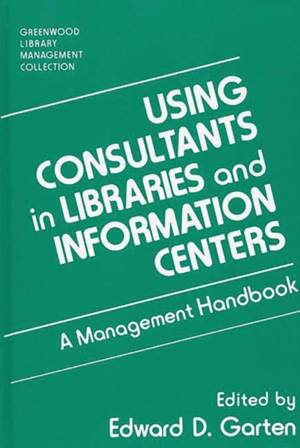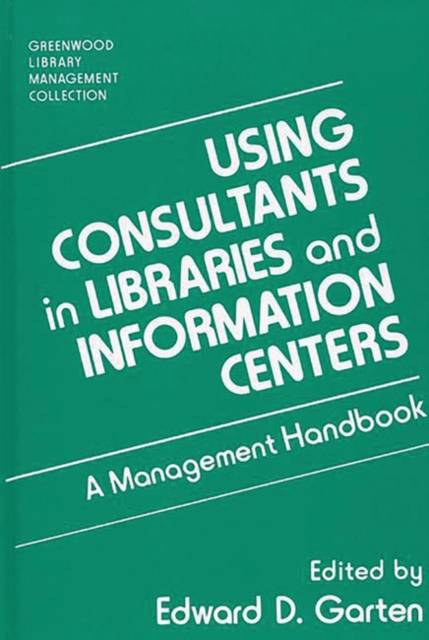
- Retrait gratuit dans votre magasin Club
- 7.000.000 titres dans notre catalogue
- Payer en toute sécurité
- Toujours un magasin près de chez vous
- Retrait gratuit dans votre magasin Club
- 7.000.0000 titres dans notre catalogue
- Payer en toute sécurité
- Toujours un magasin près de chez vous
Description
This handbook offers a comprehensive discussion of the consultant/library relationship. It includes chapters written by full-time professional library consultants, information specialists, and library administrators who have had extensive experience in using consultants to solve a range or problems in information service. Parts I and II address the need to provide a solid foundation, based on an understanding of what the consultant will do, before arriving on the scene. Practical advice is offered by the contributors which should allow for the library or information center staff to more fully accept the activity of the consultant. A common thread woven throughout the chapters is the need for strong communication. Part III offers views on the roles that consultants may play in the negotiation process, the development of proposals, and in the evaluation of large-scale information systems. Specialty areas of consultancy are discussed in Part IV, while Part V explores the more vexing dilemmas associated with the consulting process. Parts VI and VII provide insights into the future use of consultants and explores alternatives to the use of the traditional external consultant. A bibliographic essay and comprehensive index complete the volume.
New library administrators will find this book of value as they seek to understand the value of using consultants and in establishing effective working relationships with them. Middle management library administrators will find the book of interest as they seek to appreciate the range of specialities that consultants now offer. In addition, library and information science students, as well as consultants themselves, will find the book of practical value.Spécifications
Parties prenantes
- Auteur(s) :
- Editeur:
Contenu
- Nombre de pages :
- 304
- Langue:
- Anglais
- Collection :
Caractéristiques
- EAN:
- 9780313278785
- Date de parution :
- 13-10-92
- Format:
- Livre relié
- Format numérique:
- Genaaid
- Dimensions :
- 165 mm x 244 mm
- Poids :
- 653 g

Les avis
Nous publions uniquement les avis qui respectent les conditions requises. Consultez nos conditions pour les avis.






